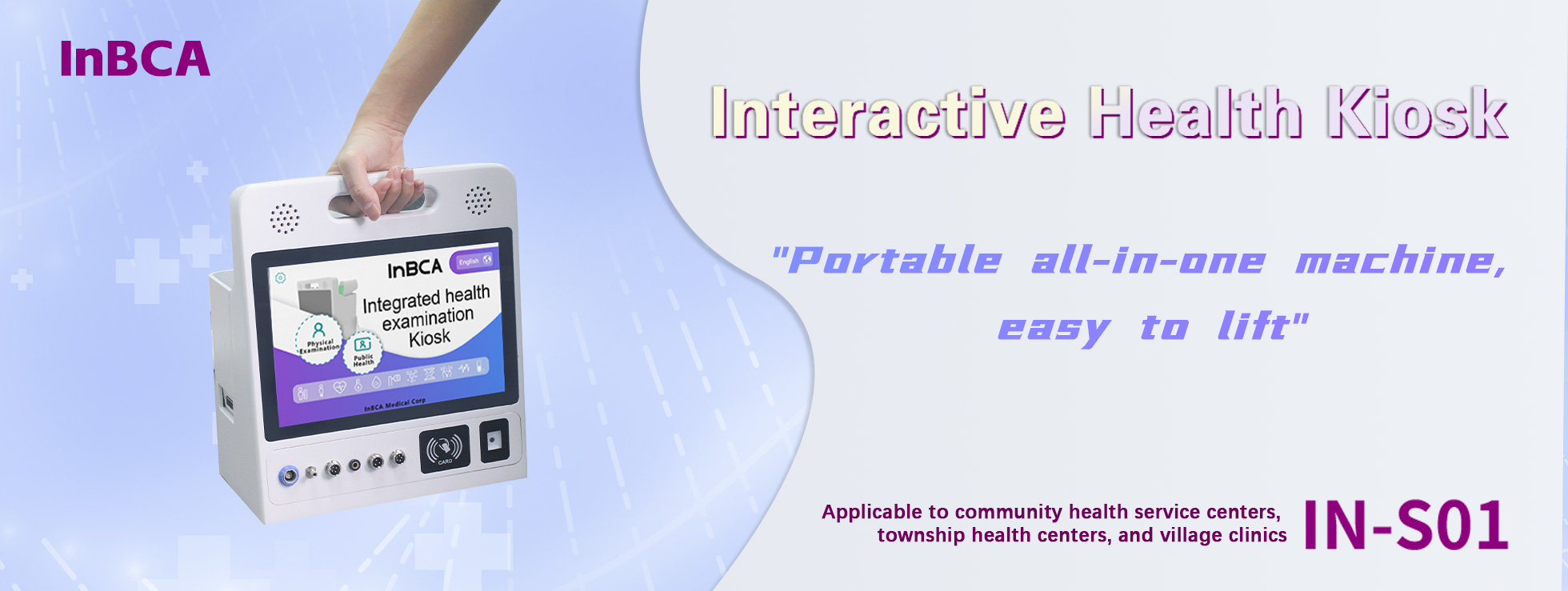## Interactive Health Kiosks: Your On-Demand Gateway to Basic Wellness Insights
Imagine walking into your local pharmacy, library, or community center and having access to a quick, private health check-up within minutes – no appointment needed, often at no cost. This is the reality offered by **Interactive Health Kiosks**, innovative self-service stations transforming how individuals access fundamental health information and monitoring.
**More Than Just a Screen: What They Do**
These freestanding kiosks are equipped with user-friendly interfaces and integrated medical devices. Typically, they allow individuals to:
1. **Measure Vital Signs:** Check blood pressure, heart rate, temperature, and sometimes oxygen saturation (SpO2) using built-in, sanitized cuffs and sensors.
2. **Calculate Body Composition:** Step on integrated scales to measure weight and calculate Body Mass Index (BMI).
3. **Conduct Basic Health Assessments:** Answer interactive questionnaires about lifestyle, symptoms, risk factors (like smoking or family history), and mental well-being.
4. **Access Health Information:** Provide reliable, curated educational content on various health topics, conditions, preventive care, and local health resources.
5. **Track Progress:** Some kiosks allow users to create profiles (often anonymous or secured) to track their measurements over time.
6. **Facilitate Screenings:** Offer guidance on screenings relevant to age or risk factors (e.g., diabetes risk assessment).
7. **Connect to Resources:** Provide information on nearby clinics, support groups, or telehealth services.
**Why They Matter: Key Benefits**
* **Increased Accessibility:** Kiosks bring basic health monitoring and information directly to where people live, work, and shop – breaking down barriers like transportation, cost, and time constraints for initial assessments.
* **Convenience and Speed:** No appointments, minimal waiting times. A basic check-up takes only 5-15 minutes.
* **Empowerment and Proactive Health:** Encourages individuals to take an active role in monitoring their own health, fostering awareness of key metrics like blood pressure and weight.
* **Early Detection:** Regular monitoring can help identify potential health issues (like hypertension or significant weight changes) earlier, prompting timely medical consultation.
* **Reduced Burden on Primary Care:** By handling routine vital sign checks and basic assessments, kiosks free up valuable time for doctors and nurses to focus on complex diagnoses and treatment.
* **Data for Public Health:** Aggregated, anonymized data can provide valuable insights into community health trends and needs.
* **Cost-Effectiveness:** For organizations deploying them (like employers, insurers, or public health departments), they can be a cost-effective way to promote wellness and preventive care at scale.
**Addressing Concerns: Privacy and Limitations**
* **Privacy:** Reputable kiosks prioritize data security. Personal identifiers are usually optional. Data transmission is encrypted, and strict protocols govern data storage and use. Users should always review the privacy policy.
* **Not a Replacement for Doctors:** It's crucial to understand that kiosks provide *information* and *basic screening*, **not diagnosis or treatment**. They are a starting point, not an endpoint. Any concerning results or persistent symptoms require follow-up with a qualified healthcare professional.
* **Accuracy:** While generally reliable for screening purposes, measurements can be affected by user technique, recent activity, or device calibration. They are best used for trend monitoring rather than absolute clinical diagnosis.
* **Accessibility for All:** Design considerations are important to ensure usability for people with disabilities, varying tech literacy, and different languages.
**The Future of On-Demand Health**
Interactive Health Kiosks are rapidly evolving. Future iterations may incorporate:
* **More Advanced Sensors:** Potential for non-invasive blood glucose monitoring or advanced cardiovascular metrics.
* **Enhanced Telehealth Integration:** Seamless connection to a live healthcare provider directly from the kiosk.
* **Personalized AI Guidance:** Offering tailored health recommendations based on the collected data and user profile.
* **Broader Deployment:** Expansion into workplaces, schools, rural areas, and developing countries to bridge healthcare gaps.
**Conclusion**
Interactive Health Kiosks represent a significant step towards democratizing access to fundamental health information and monitoring. By offering convenient, immediate, and often free insights into key health metrics, they empower individuals to be proactive participants in their well-being. While they will never replace the essential role of physicians, they serve as valuable tools for early detection, health education, and fostering a culture of prevention, making basic health awareness accessible to all, anytime, anywhere. The next time you see one, consider stepping up – it might offer a valuable snapshot of your current health status. Remember, knowledge is the first step towards a healthier you.
*(Image suggestion: A photo of a modern, clean-looking interactive health kiosk in a well-lit pharmacy or community center setting, with a friendly user interacting with the touchscreen.)*



